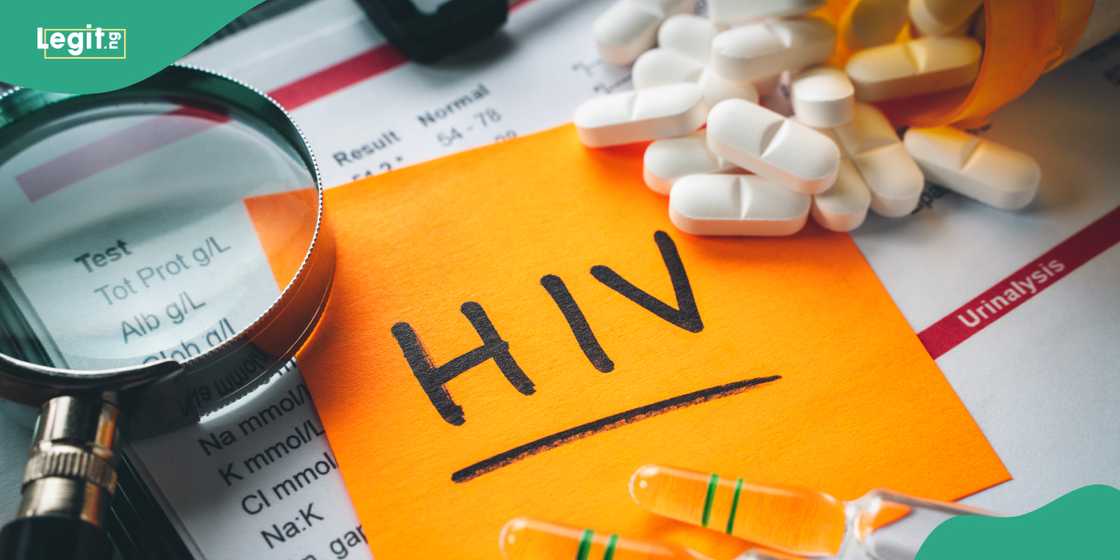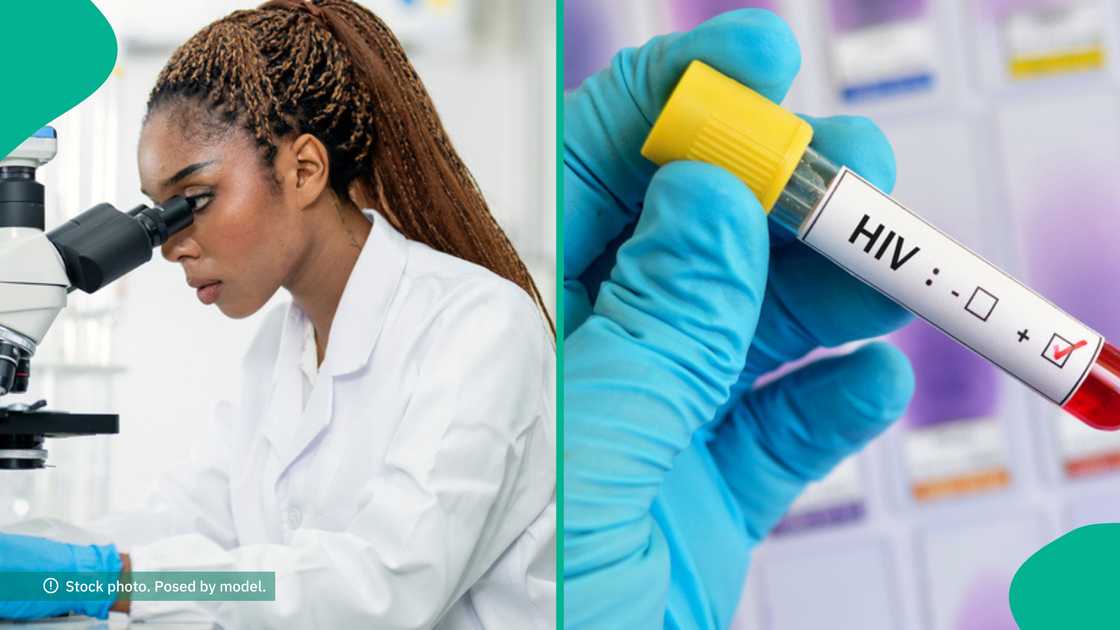Rivers, Benue, Akwa Ibom Lead Nigeria's HIV Burden as Over Two Million Live With Virus
- New HIV data from NACA shows Rivers, Benue, and Akwa Ibom have the highest number of cases, with over 2 million people living with HIV nationwide
- While treatment access has improved, a major gap remains in mother-to-child prevention, with only a third of pregnant women in need receiving ART
- The Federal Government has allocated billions in funding to sustain HIV treatment amid concerns over international aid cuts
Nigeria’s latest HIV spectrum estimates reveal that over two million people are currently living with HIV, with Rivers, Benue, and Akwa Ibom States topping the list of most-affected regions.
The figures, released by the National Agency for the Control of AIDS (NACA), show that Rivers State has the highest prevalence, with 208,767 recorded cases, followed closely by Benue with 202,346, and Akwa Ibom with 161,597.

Source: Getty Images
Lagos comes fourth on list
Lagos, Nigeria’s economic powerhouse, ranks fourth with 108,649 cases, while Anambra and the Federal Capital Territory follow with 100,429 and 83,333 cases respectively. Other high-burden states include Delta (68,170), Imo (67,944), Enugu (61,028), and Edo (60,095).
Despite some states reporting lower numbers, the widespread distribution of cases reflects the scale of the national challenge.
The report paints a concerning picture of HIV’s persistence across Nigeria. While progress has been made in treatment access and awareness, gaps remain—particularly in prevention among vulnerable groups, including pregnant women.
According to NACA, an estimated 43,683 people died from HIV-related causes in the past year alone. This includes over 15,000 children, a statistic that raises urgent questions about paediatric care and early intervention.
Women more affected than men
As of the latest estimates, 1,753,425 people living with HIV are aware of their status. Of these, 1.69 million are adults, with women accounting for nearly twice the number of men.

Source: Getty Images
Encouragingly, over 1.73 million individuals are currently receiving antiretroviral therapy (ART), and 1.11 million have achieved viral suppression — a critical milestone in halting transmission and maintaining health.
Among pregnant women, the data shows that while 93,186 were identified as needing ART to prevent mother-to-child transmission, only 31,095 accessed treatment — a troubling shortfall in a key area of intervention.

Read also
Nigerian govt sends notable message to all CBEX 'investors', “to put your hard-earned money"
Trump's unsettling foreign policies affect dynamics
In response to growing concerns about drug supply and funding gaps, NACA Director-General Dr. Temitope Ilori assured Nigerians that the government is actively securing resources to sustain HIV programmes.
“The Federal Executive Council approved $1.07 billion to finance healthcare sector reforms under the Human Capital Opportunities for Prosperity and Equity programme,” she stated.
“Additionally, N4.8 billion was approved for HIV treatment, and the Nigerian Senate has recently allocated N300 billion to the health sector in the 2025 budget.”
Ilori added that these funds will help cushion the impact of recent cuts in international aid and ensure that ongoing treatment and prevention efforts are not disrupted.
Stop selling your eggs for money – UI warns students
Earlier, Legit.ng reported that the University of Ibadan had expressed growing concern about the rising trend of egg donation among its female students, warning that the practice - though beneficial in some medical contexts - may pose serious health risks and should not be treated as a quick source of income.
In a memo dated April 15, 2025, and signed by Dr. Aderonke Ajayi, Director of the University Health Service, the institution noted a disturbing increase in the number of students being recruited by individuals and agencies to donate eggs for in-vitro fertilisation (IVF) procedures.
Source: Legit.ng




